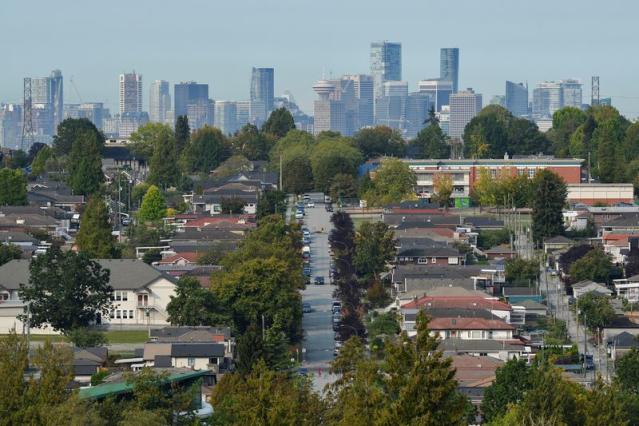
BENGALURU, March 1 – The drop in home prices in Canada this year will be steeper than forecast three months ago but mild compared with an historic run-up during the COVID pandemic, leaving many first-time buyers still priced out of the market, a Reuters poll showed.
Following nearly a year of mostly aggressive interest rate rises from near-zero that the Bank of Canada has only recently set on pause at 4.50%, mortgage rates have soared over 170 basis points, restricting activity in the once red-hot market.
Average home prices in Canada have already fallen roughly 15.0% from their early 2022 peak and are forecast to drop 12.0% this year, according to the median view from a Feb 15-28 poll of 13 housing experts.
That is slightly more severe than the 10.0% fall predicted in a November survey.
But that expected decline is dwarfed by the more than 50% rise during the height of the pandemic, and is a very small fraction of prices that roughly tripled over the past two decades, suggesting the dream of owning a home will remain out of reach for many prospective first time buyers.
While most analysts said such a fall in house prices would improve affordability somewhat, others said they needed to drop a lot more to make any difference.
«We think in normal times a 30% house price decline would be a crash, but in this context of what we’re coming from with the two-year surge, it’s a necessary correction to restore affordability,» said Tony Stillo, director of economics for Canada at Oxford Economics.
Asked how much average house prices would fall from peak to trough, the median response was 20.0%, more than the 17.5% predicted in the November poll. The range of forecasts varied from 12.5% to 30.0%.
House prices in Toronto and Vancouver, front runners in the recent house price boom, were forecast to drop 15% and 12%, respectively, in 2023, compared with rises of over 50% and 30% during the pandemic.
Without a large correction, prospective homeowners will continue renting. A strong majority, 7 of 10 analysts, said home ownership would decrease over the next two to three years.
«We view the drop in average prices as only offsetting the run-up in mortgage rates, so net affordability really hasn’t improved in the past year,» said BMO Capital Markets chief economist Douglas Porter.
«Of course, the Canadian housing market is rarely ‘affordable’ for many potential first-time buyers.»
Urban rent affordability is also set to worsen over the next two years, according to eight of 11 respondents, with rents kept elevated through ever-expanding demand from immigration and supply not keeping pace.
«Strong rental demand and low vacancy rates will maintain intense upward pressure on rents,» said Robert Hogue, assistant chief economist at RBC.